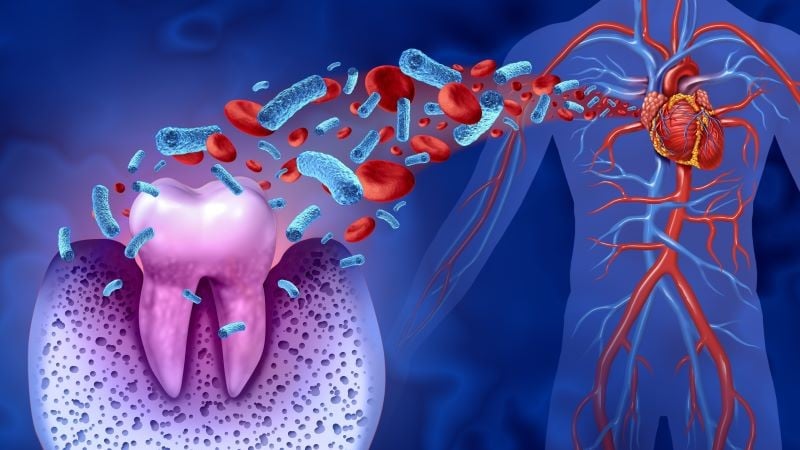Higher periodontal inflamed surface area observed in patients with versus those without a-fib recurrence
By Elana Gotkine HealthDay Reporter
THURSDAY, April 11, 2024 (HealthDay News) — Periodontitis is a risk factor for atrial fibrillation (AF), according to a study published online April 10 in the Journal of the American Heart Association.
Shunsuke Miyauchi, M.D., Ph.D., from Hiroshima University in Japan, and colleagues prospectively enrolled 288 patients with AF scheduled to undergo initial radiofrequency catheter ablation. The periodontal inflamed surface area (PISA) was measured in all patients. Within the blanking period, all patients were recommended to receive periodontal treatment; 97 patients consented.
The researchers documented 70 AF recurrences (24 percent) during the mean follow-up period of 507 ± 256 days. Higher PISA was seen for patients who exhibited versus did not exhibit AF recurrences. According to the receiver operating characteristic analysis for AF recurrence, patients were categorized into high- and low-PISA (>615 and <615 mm2) groups (area under the curve, 0.611; sensitivity and specificity, 39 and 89 percent, respectively). Significant predictors of AF recurrence included high PISA, female sex, AF duration, and left atrial volume (hazard ratio, 2.308 for PISA >615 mm2). Among patients with high PISA, significantly fewer recurrences were seen for those who underwent periodontal treatment. For AF recurrence, the adjusted hazard ratio of periodontal treatment was 0.393.
“Periodontitis serves as a modifiable risk factor for AF,” the authors write. “Hence, periodontal examination is beneficial for AF ablation candidates.”
One author received funding from a Johnson & Johnson medical research grant.
Copyright © 2024 HealthDay. All rights reserved.








